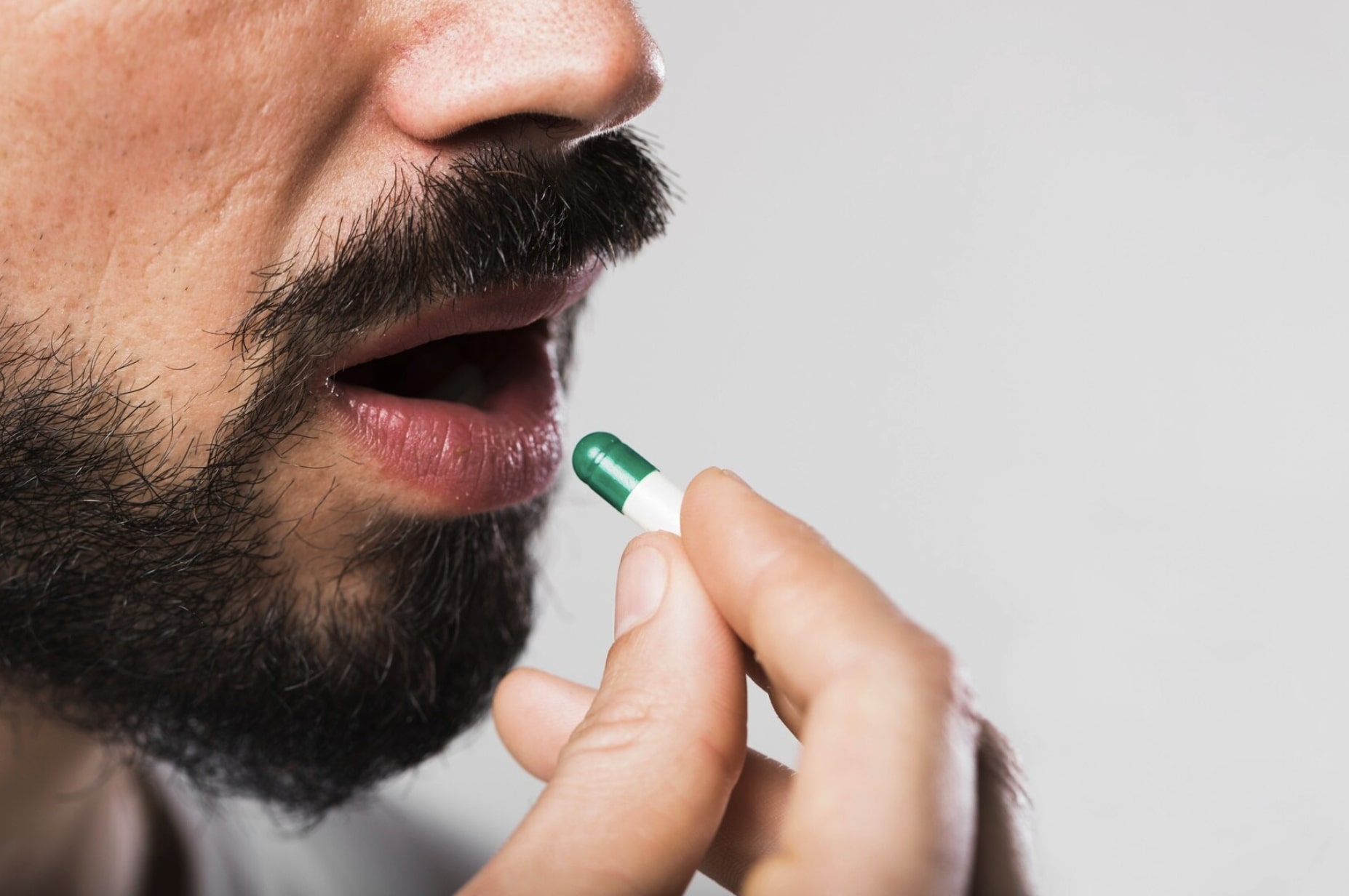Testosterone replacement therapy (TRT) has become a game-changing option for men struggling with symptoms of low testosterone. For millions of men, TRT can help restore vitality, improve energy levels, boost mood, and maintain a healthy sex drive.
Like any medical therapy, however, TRT requires careful monitoring to ensure it remains safe and effective for all patients. One of the most important lab markers your provider will check is hematocrit. Elevated hematocrit is a known potential side effect of TRT, and if left unaddressed, it can increase cardiovascular risk. (1)
In this article, we’ll explain what hematocrit is, why testosterone therapy can raise it, and some safe, effective strategies you and your provider can use to keep it in a healthy range.
What Is Hematocrit and Why Does It Matter?
Hematocrit is the percentage of your blood that consists of red blood cells. These cells are responsible for transporting oxygen from your lungs to the rest of your body. When your hematocrit is balanced, oxygen delivery is efficient, blood flows smoothly, and your organs and muscles can function at their best.
For men, normal hematocrit typically ranges between 41 and 50 percent, though exact reference ranges may vary slightly between labs. Levels above this threshold are typically considered elevated. (2)
High hematocrit makes your blood thicker, which increases its viscosity. Thick blood does not flow as easily through your veins and arteries, which can put additional strain on your heart and vascular system. (3) Over time, this strain can lead to serious heart-related issues. In short, while red blood cells are essential for energy and stamina, too many of them can cause health problems.
Why Does TRT Increase Hematocrit?
One of the ways testosterone therapy works in the body is by stimulating red blood cell production in the bone marrow. It does this in part by influencing the hormone erythropoietin, which directs the body to make more red blood cells. While this boost can improve energy levels, it also raises the chance of hematocrit levels climbing too high. (4)
Elevated hematocrit is more common with injectable testosterone than with gels or patches. Injections deliver higher concentrations of testosterone at once, which can trigger a stronger red blood cell response. In one study, about 23% of men receiving injectable testosterone developed a hematocrit greater than 50%, a higher percentage than those given testosterone gels. (5)
Certain men are also more prone to developing high hematocrit on TRT. Risk factors include older age, smoking, sleep apnea, and living at high altitudes. (6) Regardless of your situation, routine blood monitoring is essential. Your provider can catch rising hematocrit early and take steps to address it before it becomes a problem.
Risks of High Hematocrit on TRT
While high hematocrit can be mitigated with proper treatment, ignoring it can increase the risk of several serious health conditions. Thickened blood circulates less effectively, which can sometimes lead to blood clots that may form in veins or arteries, stroke caused by reduced blood flow to the brain, or even heart attack resulting from blocked circulation.
Beyond these major risks, high hematocrit can also cause more minor symptoms that affect your day-to-day life. Some men may experience frequent headaches, dizziness, blurred vision, or fatigue. Others may notice high blood pressure readings during routine checks. If you notice any of these signs, it could be an early warning that hematocrit levels are rising.
Research has shown that men on TRT who develop high hematocrit are more likely to experience cardiovascular complications compared to those whose levels remain stable. (7) This is why ongoing monitoring and early intervention are so important for men undergoing TRT.
How to Lower Hematocrit on TRT
If your hematocrit begins to climb, your provider, such as your local Gameday Men’s Health location will discuss options for bringing it back into a safe range. The good news is there are proven, effective strategies that allow most men to continue testosterone therapy while minimizing risks. Some of the most common approaches include:
- Therapeutic phlebotomy: A medical blood draw that removes a unit of blood to reduce the concentration of red blood cells. This is one of the quickest ways to bring hematocrit levels down, and it is usually performed under medical supervision.
- Regular blood donation: Some men may qualify to donate blood at approved centers. Regular blood donation can potentially have a similar effect as phlebotomy, as both procedures involve removing blood from the body. However, some blood banks have restrictions for men on TRT.
- Adjusting TRT dosage or frequency: Lowering the TRT dosage or spreading out injections can reduce the red blood cell response without losing the benefits of therapy.
- Switching formulations: Men who consistently develop high hematocrit with injections may have a better response with gels or patches, which deliver testosterone more gradually.
- Lifestyle and hydration strategies: Drinking enough water, avoiding smoking, moderating alcohol intake, managing stress and exercising regularly can all help maintain healthy blood flow and viscosity. (8)
Other considerations include avoiding unnecessary iron supplementation and addressing underlying conditions like sleep apnea, which can also contribute to elevated hematocrit. (9) The right plan will depend on your individual health profile and your provider’s guidance.
The Importance of Medical Monitoring
Managing hematocrit is not something that should be done on your own. Undergoing regular blood work and consultations with your physician is essential to track changes and prevent complications. Most providers recommend testing hematocrit at least every three to six months during the first year of TRT and at least annually once levels are stable. Hematocrit tests are simple blood tests that do not require fasting or other preparations beforehand. (10)
Monitoring hematocrit is part of a broader picture of health on TRT. Providers often track hemoglobin, estradiol, prostate-specific antigen (PSA), and cholesterol levels as well. Together, these tests give a complete view of how therapy is affecting your body and ensure treatment remains safe.
Attempting to self-adjust testosterone dosage or ignoring elevated hematocrit levels can be dangerous. Because high hematocrit does not always cause noticeable symptoms, the safest approach is to stay consistent with your lab schedule and closely follow your provider’s recommendations about any potential therapy adjustments.
TRT Management at Gameday Men’s Health
At Gameday Men’s Health, the safety of our patients is integrated into every hormone therapy program we administer. Before beginning therapy, we perform comprehensive hormone testing to establish a clear baseline. From there, a licensed clinician creates a customized plan designed to improve energy, mood, and vitality while minimizing risks while considering factors such as your health goals and history.
We know that numbers like hematocrit can sound complicated and may even make some men nervous about starting TRT. That’s why our providers take the time to walk you through your lab results in clear, straightforward language that makes it easy to understand.
If your hematocrit rises, our team can work with you to decide on the best strategy, whether that means adjusting your dosage, exploring different delivery methods, recommending a phlebotomy schedule, or, in extreme cases, stopping your TRT entirely.
Our clinics are designed with convenience and comfort in mind. Appointments are efficient, results are explained thoroughly, and care is always personalized. Plus, our offices are designed with men’s comfort in mind, so you’ll always feel at ease when undergoing treatment or discussing results with your clinician. Men who choose Gameday Men’s Health can feel confident that their TRT is being managed with safety and effectiveness as top priority.
Managing Hematocrit for Long-Term Health
Testosterone replacement therapy can offer significant benefits for men with low testosterone, but keeping hematocrit in a safe range is essential for your long-term health. High hematocrit can increase the risk of cardiovascular complications if left unchecked. But, with proper monitoring and management, it can be controlled effectively
At Gameday Men’s Health, we work with you to ensure your TRT is not only delivering life-altering results, but also has your long-term safety in mind. By focusing on ongoing monitoring and individualized care, we help our patients maintain the right balance and get the best results from treatment.
If you’re ready to start your TRT journey, or if you are already on TRT but are concerned about potentially elevated hematocrit, contact your local Gameday Men’s health today to schedule a consultation.
References
- Management of hematocrit levels for testosterone replacement patients, a narrative review
- Hematocrit Test
- All you need to know about thick blood
- Testosterone Induces Erythrocytosis via Increased Erythropoietin and Suppressed Hepcidin: Evidence for a New Erythropoietin/Hemoglobin Set Point
- Prevalence and predictive factors of testosterone-induced erythrocytosis: a retrospective single center study
- Why Testosterone Raises Hematocrit in Some Men but Not Others
- Rises in Hematocrit Are Associated With an Increased Risk of Major Adverse Cardiovascular Events in Men Starting Testosterone Therapy: A Retrospective Cohort Claims Database Analysis
- 5 Lifestyle Changes That Can Transform Your Circulatory Health
- Does obstructive sleep apnea increase hematocrit?
- Hematocrit test











